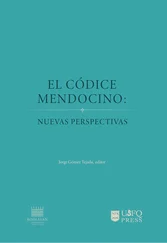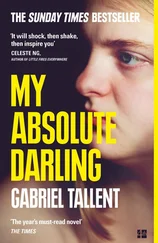sturm und drang
hair, down the fatal hallway. How can love do this, alienate one from oneself? One’s necessary, tenured self? All winter, this is the lone relief built into every pitiless week: white-knuckling it at the podium, Clio suffers the loss of something other than the Beloved.
Fridays can be very bad. As junior faculty, the Beloved isn’t always required to attend faculty meetings, but sometimes she must. So there is this torment, certain Fridays, of having to sit on the far side of a slab of exotic wood from some plundered rainforest, studying the span of the Beloved’s cheekbone, a revelation of human perfection. Like human perfection, shadowed. The corner of the Beloved’s mouth has an unwarranted tendency to break Clio’s heart. That is, the corner of this mouth now and then deepens into a near smile. Suppose everyone were capable of disarming everyone else thus, by the merest turn of a head, by the flicker of an eyelid or the premonition of a smile: then all relations would be grounded in wonder, then everyone would be taken hostage by the immensity of what it is possible to feel.
Q: True or false: In narrative, desire is scarcely born before it encounters an obstacle; neither can exist without the other.
A: Following the Beloved down that fatal hallway, you , in your Questioner’s detachment, would have kept your wits about you, and would have observed, on the fourth finger of the Beloved’s left hand, the diamond whose flash was hidden by the wonder veiling Clio’s mind. Well: she is only a character, much of her own story is lost on her.
In that multiply mirrored ladies’ designed for blissful immersion in one’s reflection the Beloved rinses Clio’s trousers under a golden faucet. She twists and wrings out the trousers, then carries them to a dryer on the wall, tapping its round silver button, dangling the black legs in the sirocco so they weave happily, gusting into the Beloved’s own body, then fainting away.
“Really, you don’t have to do this. You should be out with the others.”
“
I
spilled the wine all over you.”
This washerwomanly penance is cute, they both think.
“Why did you say, before, ‘sad’?” Clio asks.
“Maybe everyone is, when a dinner party drags on and on. If we had a reason to leave, we’d leave. If we don’t have a reason, that’s sad. You don’t seem to have a reason. Or”—she catches herself—“is it rude to say that?”
When she turns Clio makes a fig leaf of her hands. “No, honest.”
“And I was surprised, you know? One always thinks of famous people as having everything figured out. Here. I think you can try these now.”
Q: Susan Stewart writes:
The face becomes a text, a space which must be “read” and interpreted in order to exist. The body of a woman, particularly constituted by a mirror and thus particularly subject to an existence constrained by the nexus of external images, is spoken by her face, by the articulation of another’s reading. Apprehending the face’s image becomes a mode of possession. . The face is what belongs to the other. It is unavailable to the woman herself.
A: What was the question?
Q: What do you make of that?
A: Clio, hiking her trousers up, finds the Beloved stretching lazily, her real and mirrored arms uplifted, fingers interlaced, palms ceilingward, fox-red tufts of underarm hair bristling, black dress hiked midthigh-high: flirtatiousness or ravishing unself-consciousness, and for her watcher, no knowing which. So exigent is Clio’s confusion that she cracks her knuckles and then remembers how she had hated it when her mother did that. The memory stamps out several little wildfires of desire, Mother’s is so derisive a shade, and Clio was never out to her. The perfect antidote to desire, skinny Mother materializing, upright backbone and the witty incision of her neat, ungiving Methodist smile. Just try thinking back through this woman.
It’s then that two blazing wings of sensation touch down on Clio’s nape, and the Beloved’s palms begin to move in circles, massaging, worrying at the tension they discover, digging in, the Beloved’s thumbs bookending the axial vertebra, so that Clio feels the three-dimensional puzzle-piece of bone turn as distinct as if newly wedged in place, her entire skull balanced upon the knife’s point of sexual alertness, Clio afraid to move or make a sound for fear of dislodging the hands, startling them into flight. She is aware that
savage loss is the counterpart and shadow of this raw arousal and yearning, which she can scarcely trust even as she leans into it, wondering what this means, this sensual charity.
“Shiatsu.”
“Shiatsu,” echoes Clio.
“Mmm. Good for what ails you.”
The Beloved’s reflection squints at the real-world Clio over her shoulder, to which she administers a comradely slap. Dismissed.
What ails me?
Clio wonders.
Loss. Aging. Regret.
So this is Eros’ dark side. Always before it was Clio who inflicted the first reality check. The pangs foreshadowing abandonment, the subtly poisonous forewarning: Clio dealt those out.
Now we come, though it’s timed wrong, to our epiphany, for Clio, academe’s androgynous roué, contriver of seductions, far-flung affairs, and prolonged breakdowns — here and now, Clio encounters a possibility never before entertained: she’s been unkind. Careless with others’ hearts. A waster of time, a despoiler of affection. As of this moment, that Prof. Mitsak is dead. Just ask Clio, absorbed in this mirror’s vision, herself and her at-last true love, the radiant-haired object of all future dreams, now rubbing a finger across a front tooth. Clio puts her hands on those shoulders and turns the slender black-sheathed body around. She feels the weird cessation of her breath in her throat — heart-stopping, she thinks — and then all self-narration, even the stabs at description that accompany the worst emergencies, stops. Though the red mouth tilts toward her, lips parting, the eyes remain open. Dazzling, desirous, repelled, unreadable.
Q: Compare/contrast the roles of “body” and “soul” in the act of kissing.
A: This eyes-open kiss is clumsy: neither body nor soul can readily forgive that. Seduction, it turns out, requires an almost Questioner-like detachment to ensure grace. To become a character in the story is to fall from grace. It’s as if Clio, in her previous affairs, was always narrator, never simply down in the story, at the muddy, helpless level where she understood only as much as anyone else. Or less. It could be that the Beloved needs a narrator, not simply a floundering fellow character. Clio’s teeth grate against the Beloved’s, a terrible, nails-on-blackboard sound from which they both recoil.
Q: Comment briefly on the following quotation:
Perhaps it was to that hour of anguish that there must be attributed the importance which Odette had since assumed in his life. Other people are, as a rule, so immaterial to us that, when we have entrusted to any one of them the power to cause so much suffering or happiness to ourselves, that person seems at once to belong to a different universe, is surrounded with poetry, makes of our lives a vast expanse, quick with sensation, on which that person and ourselves are ever more or less in contact.
A: All that drear winter of La Niña, Clio feels as if she’s trying to keep a wine cork submerged in a bathtub using only one thumb, so dodgy and unpredictable is this love. Tamped-down love means not only sublimated energy but also ranting, pointless impatience: before long, she’s sick of obsession’s two-lane Nebraska highway. She welcomes any distraction, even this folder, thwacked down on her desk by a junior colleague, younger even than the Beloved. Fading back toward the doorway, this colleague announces in an injured tone: “We really need to talk at some point after you’ve read this.” “About?” “About Nadia.” The Beloved, up for tenure. While junior faculty can’t vote on tenure decisions, they do a fair amount of lobbying — if that’s what this is — on behalf of favored candidates. Renee strains for ease, a gauche, brain-driven woman whose particular mix of ethnicity baffles Clio. African American? Vietnamese? And Czech? Irish? Dutch? Some unprecedented cat’s cradle of deoxyribonucleic acid granted her that shapely mouth, pugilist’s menacing nose with flaring nostrils, oily fawn skin marred across the cheekbones by an orange-peel stippling of adolescent acne. That acne, severe and untreated, suggests a raisin-in-the-sun, down-home poverty, valiantly tackled and, at this point in her young career, stringently repudiated. If Renee ever had an accent, it’s gone. Or not quite: some suggestion of backwater lulls and daydreamy delta vowels remains, despite that impressive will. To suggest a chic she’s far from possessing, Renee’s left ear is multiply pierced; adorned with wires and rings, it seems more alert than the other, more attuned to signals and nuances. It is to this ear that Clio says, “I’ll read it. We’ll talk.”
Читать дальше












